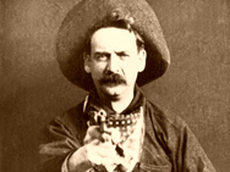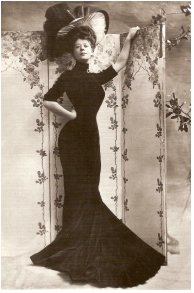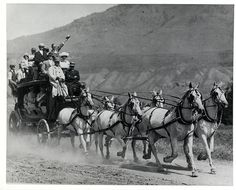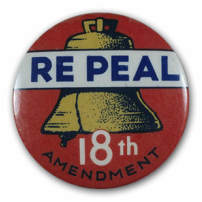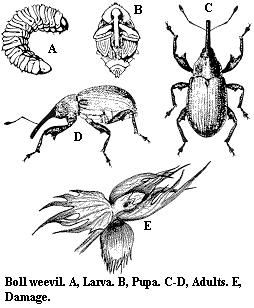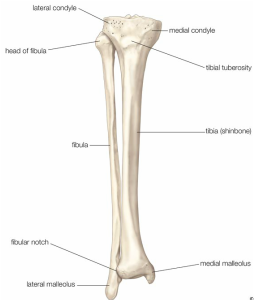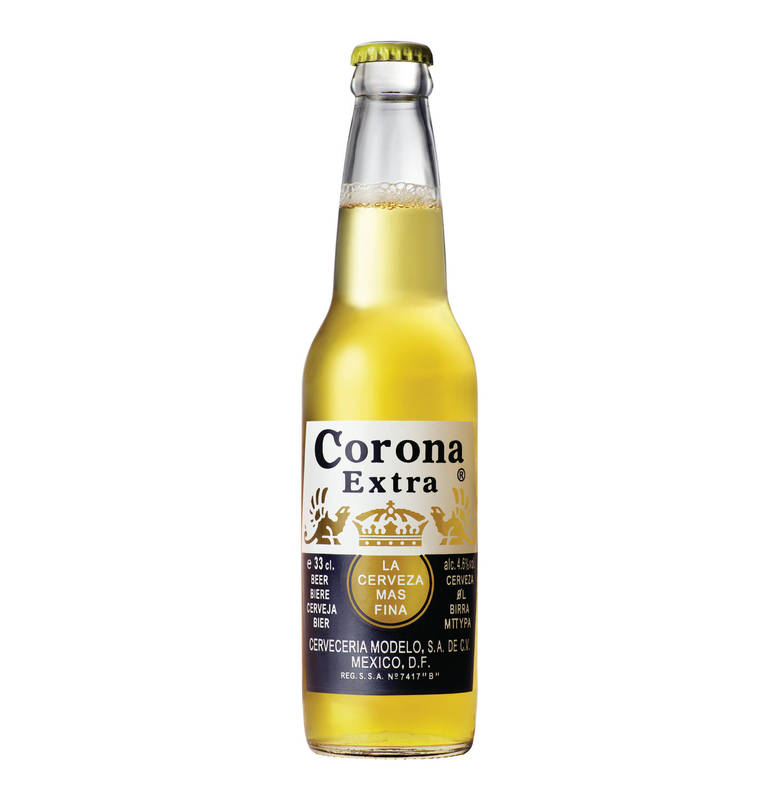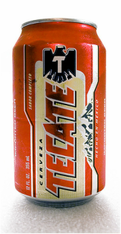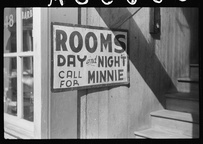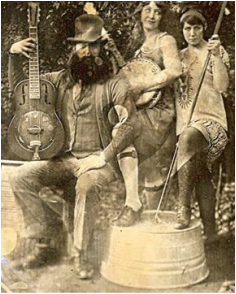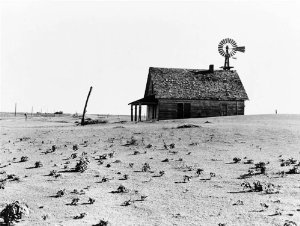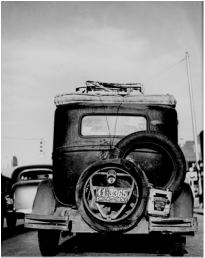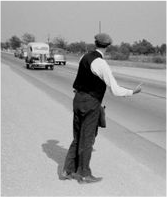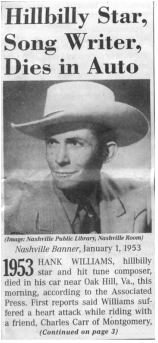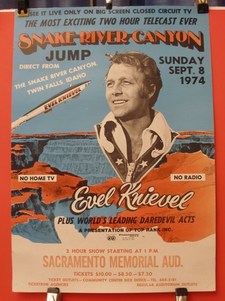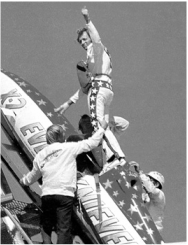Ugly Roomer
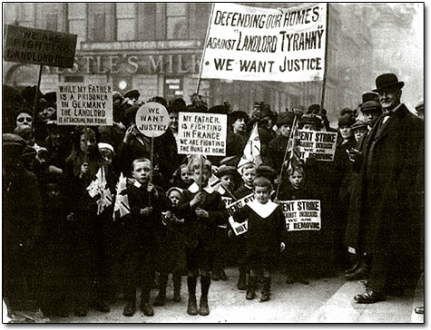
"Neon" Leon Fullerton often said that we're all just tenants of the universe and can be flooded out, burned out, sold out, squeezed out, wiped out or evicted in the wink of a snake eye. He advised planning accordingly. (Which, to his way of thinking, roughly translated to not planning at all.)
He performed these songs at one time or another with two acoustic bands: Doug Fergold and the Claim Jumpers and Tanya Hyde and the Hell-for-Leatherettes. Both units embraced so-called roots music styles decades before it became a recognized (albeit somewhat patronizingly) genre.
As always, the Del-Rays did the recordings, Raphie Gunn playing rhythm guitar, vocals, and harp and Del managing the other assignments. The songs were selected to highlight some of Fullerton's more down-home-style material. "What we came up with," says Del, "turned out to be kind of a bummer of a set, mostly. Dark stuff, the nocturnal side of Uncle Lee, the original ugly roomer, himself. It has a few rays of sunshine, but mostly it's moonshine. 'Keep On the Sunny Side' was never his theme song."
Songs on this page:
He performed these songs at one time or another with two acoustic bands: Doug Fergold and the Claim Jumpers and Tanya Hyde and the Hell-for-Leatherettes. Both units embraced so-called roots music styles decades before it became a recognized (albeit somewhat patronizingly) genre.
As always, the Del-Rays did the recordings, Raphie Gunn playing rhythm guitar, vocals, and harp and Del managing the other assignments. The songs were selected to highlight some of Fullerton's more down-home-style material. "What we came up with," says Del, "turned out to be kind of a bummer of a set, mostly. Dark stuff, the nocturnal side of Uncle Lee, the original ugly roomer, himself. It has a few rays of sunshine, but mostly it's moonshine. 'Keep On the Sunny Side' was never his theme song."
Songs on this page:
- The Ballad of Fenton Baxter
- Maggie Brown
- When the Wagon Rolls 'Round
- Cold Steel, Hard Hearts
- The Wayfarer's Advice
- Ugly Roomer
- Much Much Better
- Take Me Back
- Lucky Number
- They All Came Down
- Snake River Canyon Blues
_______________________________________
|
1. The Ballad of Fenton Baxter
copyright Leon Fullerton My name is Fenton Baxter,
I rode the western rail, stoking coal for a beggar's dole when I wasn't stuck in jail. I'm know to fight and gamble and curse and whore and smoke, and I'm here to say that, come what may, true spirits can't be broke. I'll take you down if you want to go, I'll take you down, I'll take you slow, I'll take you down where the sun don't show, I'll take you down, I'll take you low. Come all you bright young fellers, please do pull up a chair. Won't point you to perdition, you're already headed there. You can stop and smell the primrose or hurry on your way. I robbed the train to Tulsa just to make those pissants pay. I'll take you down.... To kill a man is easy: you just strike him down and run. Stoking coal is twice as hard, not even half as fun. I'll take you down.... I'll take you down if you want to go, I'll take you down, I'll take you slow, I'll take you down where shadows grow, I'll take you down, I'll take you low. |
Fullerton's great-grandfather Elmo Stubbs had more encounters with outlaws than sheer chance could account for. According to Stubbs, who corresponded often with eastern relatives, Fenton Baxter was an uncommonly engaging reprobate. Stubbs shared many saloon drinks with him but avoided card games Baxter was involved in and otherwise kept a safe distance between himself and the infamous marauder.
In one letter to New Hampshire kin, Stubbs explained: "Baxter was like a good campfire on a cold winter night: a fine blaze for warming your hands, but homemade hell if you got too close." |
_______________________________________
|
2. Maggie Brown
copyright Leon Fullerton I know a gal named Maggie Brown,
she'd get all dolled up to go to town. I'd meet her there at half-past four, but she don't go to town no more. I know a gal named Maggie Black, lives in a blowed-down miner's shack. Dress her up in silk so fine, and promenade down to the company mine. I know a gal named Maggie Blue, shows the boys all what to do. Goes high-stepping Saturday night, Sunday morning sets things right. I know a gal named Maggie Green, purtiest thing you ever seen. Known far and wide throughout the land, boys kill and die for Maggie's hand. I know a gal named Maggie White, says she won't, then she says she might. Many a boy who took that bet now lives a life of grim regret. I know a gal named Maggie Red, kicked Carrie Nation smack in the head. Bottled in bond an dressed to kill, runs a ten-mile tab at the whiskey still. I know a gal named Maggie Gray, never know just what she'll say. Bought her gifts rare and devine, she said "You're kinda cute, go get in line. I know a gal named Maggie Cerise, she's more fun than a barrel of geese. Fixed her a pie and a jackalope stew, she said, "You ain't too tall, but I think you'll do." |
This song is widely remembered as one of Fullerton's favorite openers. He said: "Folks appreciate its universality. Everyone knows a Maggie Brown. Knows one or is one."
|
_______________________________________
|
3. When the Wagon Rolls 'Round
copyright Leon Fullerton When the wagon rolls 'round,
so I been told, can't take your lockets, can't take your gold, can't take your banjo or your fiddle and bow when the wagon rolls 'round, so I been told. When the wagon rolls 'round to collect your soul, can't take your dice or your dear bankroll, can't take your promises - oh, the lies you've told! - when the wagon rolls 'round to collect your soul. When the wagon rolls 'round, better hop on quick, it ain't gonna wait if you're tired or sick. Give up your ghost, don't try no trick. When the wagon rolls 'round, better hop on quick. When the wagon rolls 'round to cross Jordan's stream, have you made your peace? Will you be redeemed? There's a host of lost souls, oh, you can hear them scream, when the wagon rolls 'round to cross Jordan's stream. When the wagon rolls 'round, bound for glory land, have you an open heart and an open hand? Let go of blame - nothing goes as planned! - when the wagon rolls 'round bound for glory land. When the wagon rolls 'round, so I been told, can't take your lockets, can't take your gold, can't take your banjo or your fiddle and bow when the wagon rolls 'round, so I been told, when the wagon rolls 'round, so I been told. |
Long before founding the First Church of Latter Day Cowboys, Fullerton was already penning gospel tunes. This one proved to be a sure-fire floor-stomper.
In a 1980 review of his album Seven Ways From Sunday, he was quoted extensively on the subject of his secular music. "I'm the product of a mixed marriage. My mother was a woman and my father was a man. There were religious distinctions, as well. "Daddy's side of the family was a pack of pure-D Bible thumpers. And they knew how to put on a show. Those Fullertons played at lots tent meetings, and they managed to get on live radio pretty often. "Music was on Ma's side, too. But it leaned more to popular styles. More sophisticated, what you'd expect from a Judeo-Hebraic upbringing. She had a cousin who made a big name in Tin Pan Alley. A couple of the Baum's were cantors. And the tradition goes on: I have a nephew with one of those apocalyptic punk bands. Adam Baum and the Eve of Destruction. Not what you'd call a sacred sound, but there's no mistaking the lineage." Recording session:Recorded at Bad Bob's Boom Boom Room, Westbrook, Maine, November 2016
With: Bob Barton, Charlie Bernstein, Jim Katsiaficas, and Sue Silvestri Live show:Recorded at Riverside Park, Westbrook, Maine, July 2016.
With: Bob Barton, Charlie Bernstein, Paul Hunt, Jim Katsiaficas, Sue Silvestri, and Waterford Slim |
_______________________________________
|
4. Cold Steel, Hard Hearts
copyright Leon Fullerton Cold steel, hard hearts,
ain't no telling where it ends the second trouble starts. Cold steel, hard hearts, I must confess, corn liquor and the devil played their parts. I was minding my own business, the way I always do, drew to fill a four-card flush, like Daddy taught me to. My heart leapt like a stallion when that diamond winked at me, but then a card sharp showed four aces, took my farm and property. I tried to cheer my wife up, said it's prob'ly for the best, boll weevils ate up half the crop, and a dust storm ate the rest. But she would not be placated, so I set out on my own. I often have the urge to write when I'm near a telephone. Cold steel.... I drifted down to Mexico, my fate still unrevealed, holed up in Oaxaca till the eighteenth was repealed. rode the cold rods back to Texas worked the ranches and the range, my roof the starry sky above, my fortune pocket change. It was in the town of Dime Box in the fall of '34 I got to make one last mistake to settle one last score. That card sharp didn't know me 'cause I didn't look the same, drove an ice pick in his frozen heart, from the jailhouse bars I sang: Cold steel.... |
Fullerton's uncle Gus Gunn (Ray's father) was quick to impart to anyone within earshot what he considered life's tripartite iron rule: Drink. Or gamble. Don't drink and gamble.
He'd learned it the hard way, and as Fullerton related in two other country tunes, "Hot Springs" and "Ain't She a Caution," his wayward uncle lived to repent. But Gunn's Texas crony Odessa Red came to a sorry, if unrepentant, end. Fullerton memorialized Red's tragic demise in this cautionary ballad. |
_______________________________________
|
5. The Wayfarer's Advice (Crack a Cold Corona and Torch Another Bone)
copyright Leon Fullerton When I came to from my honeymoon,
my bride had up and left. Took the cash and stash, left me a rash, a bar bill, and bereft. I was a toss-pot desperado just trying to start anew when a poor wayfaring stranger said, "Here's my advice to you: "There's a hundred blue-light vacancies on the road to San Raphael where you can live like royalty if you can stand the smell. There's a thousand sainted sinners on the road to San Luis, you can buy their bones and scraps of clothes, but you'll never buy release. "There's a million moulting angels on the road to San Miguel. I used to know an artist there, she always wished me well. And there's countless ways to perish on the road to San Antone, so let's crack a cold Corona and torch another bone. "Let's crack a cold Corona and torch another bone, let's get this road show rolling, let's penetrate the zone. Life's too short for just one snort, and it ain't no fun alone, so let's crack a cold Corona and torch another bone." I offered up my last two bits, which I could surely spare. He flipped it and it came up tails. The stranger said, "Beware! I devine a heavy sign, it's more than happenstance, so let us take our sacraments while we still have the chance. "Let's crack a cold Corona...." |
Ray and Del are still arguing about this one.
Leon Fullerton often talked about a transient he met while he was down and out in New Mexico - an encounter that indirectly led him to buy the Samarra Ranch, a retreat he never occupied full-time but occasionally retreated to, to the frequent surprise and occasion inconvenience of the friends and freeloaders who set up housekeeping there. The cousins' artistic disagreement concerns what Fullerton and the transient had been drinking. Fullerton was always clear that it was Tecate beer, an affordable Mexican lager popular in the American southwest. Fullerton considered it tasty, satisfying, and rewarding. Raphie took the position that no one north of Tulsa or east of Topeka had ever heard of Tecate beer, rendering the pivotal line of the song indecipherable to most American ears. He suggested changing it to Corona, which has a broader name recognition geographically and alliterates with crack and cold. Better than Tecate does, in in his humble. (Dos Equis has a Q going for it but Raphie maintains that it scans weakly.) Delmont, however, was of the opinion that their uncle had always held Corona in low regard, for reasons involving the customary requirement that a slice of lime* be inserted in every open bottle. Leon's turbo-charged paranoia, always purring at least at high idle, would shift to turbo at the thought of a shadow lime-growers cartel manipulating the beer market. The consortium, according to Fullerton, was undoubtedly subsidized by eighth-generation colonial British plantationers, and he refused to do anything that might cause his late Irish aunt to shift, even minutely, in her grave. "She's comfortable where she is. Leave her be," was his final pronouncement on the subject. It was ignored. As evidenced by the version presented here, crass commercial considerations have, won out over over ephemeral family loyalty. So far. But our webmaster has an ample selection of Tecate images on stand-by, should necessity necessitate it.** |
_______________________________________
|
6. Ugly Roomer
copyright Leon Fullerton People talk all kinds of trash,
you can believe whatever's true. Some will say I'm here to stay, some will say I'm just passing through. Someone spotted me down on Grand Street on the outside looking in. Don't even need to flap my mouth to take it on the chin. Just an ugly roomer, don't much care the things they say. Am I leaving town tomorrow or arriving yesterday? My hand is not the first one to rap upon your door. Just an ugly roomer. Who could ask for more? I got no reservations, room service ain't my way, I rent 'em by the week, by the hour, or the day. Don't call me late for supper, don't call me at all, don't need no fortune cookie when the writing's on the wall. Just an ugly roomer, don't much care the things they say. Am I leaving town tomorrow or arriving yesterday? My shadow's not the first one to fall across your floor. Just an ugly roomer, like all the ones before. |
This was never published, and none of Fullerton's papers refer to "Ugly Roomer," so we don't know when this was written.
Among the effects held by he daughter is a 1961 letter from a Minerva Crookshank postmarked East Saint Louis, Missouri. Little can be ascertained from it, but it could arguably be from a landlady, a lover, or both. Fullerton had circled the words "in arrears," with an arrow pointing to the margin note "& out the other!" The letter ended: "You're one gloomy son of a baritone, but you're welcome to come back and make some more music in St. Loo anytime. Just don't leave in a huff. M." Below which, Fullerton had written: "Yup, I left in a Huff, alright. A pond-scum green 1950 Huff convertible. It was raining bats & hogs & I cdn't get the top up." It might be enough to say that, right up to his disappearance in 2002, Fullerton's story was a celebration of the transient life. |
_______________________________________
|
7. Much Much Better
copyright Leon Fullerton There just ain't much much better
than playing with the band, sometimes I make a dollar, sometimes someone shakes my hand. It don't worry me if I'm a little off-key, I just do the best I can. There just ain't much much better than playing with the band. There just ain't much much better than playing with the band, we travel near, we travel far, we roam across the land. Don't lose votes if we miss some votes, folks all seem to understand understand. There just ain't much much better than playing with the band. |
There just ain't.
|
_______________________________________
|
8. Take Me Back
copyright Leon Fullerton Take me back, take me back,
to the place where I was born. So many strangers do I meet, but no one I have known. Take me back, take me back, so many voices call me home, take me back to the place that I come from. How I long for Oklahoma, though the towns have gone to dust, The farms have gone to bankers, the plows have gone to rust. So we've gone to California, 'cause you can't go back in years. Take me back to the times before the tears. I can see my family's faces the way they used to be, but do they ever think of me? So many miles we've traveled, but just one place I'd go: take me back, take me back to my home. Take me back, take me back to my home. |
In order to keep "Take Me Back" in the family, Fullerton copyrighted the song in his own name, even though his late mother, Ada Baum Fullerton, had written it.*
For a short while after moving west from the dust-storm-obliterated Eden, Oklahoma, Ada, normally the cheerleader of the family,** experienced a short stretch during which she was often overcome by unbearable spells of nostalgia. These bouts were usually precipitated by a letter from an old friend or family member (and once by a photo of an oil rig*** in the Bakersfield newspaper), and (as young Leon would learn), could reliably be exorcized by an intensive song-writing binge. The family band was a frequent guest on local California radio stations in the thirties, and "Take Me Back" was often requested by homesick Okies. * This was done with the encouragement and blessing of the whole family. Several old-time acts had begun using it on stage,**** and the family suspected that it was only a matter of time before someone other than Leon would record it.
Because he'd been including it in his own stage show for many years, it was generally identified as his song, anyway. After copyrighting it, he made a point of explaining it's actual provenance whenever he played it. _________________ ** Unlike her depressive husband. _________________ *** That the rig depicted was at the White Rose hacienda in Chiapas, Mexico, did nothing to dampen her melancholy. **** As had reggae/world-music act Turning Sphere. |
_______________________________________
|
9. Lucky Number
copyright Leon Fullerton Yesterday my heart
was bleeding black and blue. A thousand miles from you, what else could it do? The touts and the tabloids all said we were through, but I still could not stop loving you. I've been to Houston and I've been to hell, and any place is better than a cheap motel where the walls have ears and the beds have bugs and the squad car in the parking lot is dealing hard drugs, but then the desk clerk said you'd called seven times. Well, that's my lucky number! Now I feel so fine! Checked out first thing, caught a ride by noon, been covering some ground, gonna be home soon. I walked those strange street all night long, haunted by our favorite song. Woke up on a railroad track, and that same refrain came highballing back, but then the desk clerk said.... |
Fullerton wrote this on the occasion of a brief reconciliation with Anastasia, his first wife.
He wrote in his unfinished (as far as we know) memoir, A Fretful Life: "When I got home, she said she actually hadn't been calling because she wanted to give love another ballyhoo. She'd misplaced a pair of boots - some python Luchesses, I believe, cost her a week's pay - and thought maybe I'd made off with them when we'd parted ways. "The unlikelihood that I'd've stuck her boots in my duffel was so stunningly vast - the damn thing was heavy enough with my own stuff, even had my Smith Corona portable in there - that when she explained the purpose of the phone messages, I still interpreted it as a call for companionship, not footwear.* "We had a nice time sorting it all out. Stayed together another year, anyhow. Every time I see snakeskin boots, I think of Ana." |
_______________________________________
|
10. They All Came Down
copyright Leon Fullerton He lived to ride
upon that great Lost Highway, took his final exit down that road one New Year's day, left a ten-gallon hat, a drop of Early Times, and the memory of a thousand melodies and rhymes. They all came down to the Grand Ole Opry, they all came down to the county fairs, they all came down to the honky tonk hideaways, yes, they all came down just to see him there. He lived to shine his light on a crowd of strangers, made 'em laugh and sing and dance and clap and cry. He blazed a roadhouse trail, set the wood on fire, and alone in a cold backseat wrote his last goodbye. They all came down.... |
Young Fullerton wrote this one on January 2, 1953. He said to his little sister, Cat, "Guess I'll never meet Hiram Hank Williams now. And I'll never be able to sing like that. But maybe I can get banned from the Grand Ole Opry. That'd be a start, right?"
He managed to achieve this goal in 1968 while playing Dobro with Penny Pincher and the Skinflints. Unlike Williams, however, there was never a fan-led petition drive to reinstate him. According to Fullerton's daughter, Gwen, that was of no consequence to Fullerton. As far as he was concerned, he had eighty-sixed the Opry, not vice versa, and judged that he had his fans' full support. Live at Riverside ParkRecorded at Riverside Park, Westbrook, Maine, July 2016.
Featuring: Bob Barton, Charlie Bernstein, Paul Hunt, Jim Katsiaficas, Sue Silvestri, and Waterford Slim |
_______________________________________
|
11. Snake River Canyon Blues
copyright Leon Fullerton You can call me a saint,
you can call me a sinner, you can call me a love child of dear old Uncle Sam. I'm a truck jumpin', barnstormin' great ball of fire, a freewheelin' speed demon, catch me if you can. Lord, let me fly high clean across the Snake River, broke all my bones in Vegas and got right up again. Don't want to die, but I don't need to live forever, the lord'll fly me home again but won't say when. You can call me Evel, you can call me Bobby, you can buy a ticket for a chance to see me die. You can call it dumb luck, but don't try it for a hobby - if pain were fireworks, I'm the Fourth of July. Lord, let me fly high.... |
Fullerton was on tour with the Dry Wash Rafters in the summer of '74 when he bumped into Robert "Evel" Knievel at a cafe in Pittsburg Landing, Idaho, shortly before Kneivel's attempt to jump Snake River Canyon. The motorcyclist was scouting the area in advance of his September-scheduled river jump.
Knievel and Fullerton knew each other slightly from the rodeo circuit, and as Fullerton related it \biographer Rex Geronimo, they struck up a lengthy chat over coffee and pie. When Fullerton suggested that he and the daredevil had a death wish in common, Knievel said, "No. I don't want to die. But I don't need to live forever." Fullerton jotted the remark on a napkin, then pressed the question. They eventually agreed that in the game of life, death is the ante in any bid for immortality. While they waited for their checks, Fullerton uncased his Gibson and settled into a standard three-chord rhythm, pausing at times to jot words on the back of a placemat. That done, he played the song through and asked Knievel if it would do. Knievel liked it well enough, especially the part where, upon crashing his Harley Sportster at Caesar's Palace in Las Vegas, "got right up again." The truth, of course, was that, after weeks in a coma and considerable rehab, Knievel could now walk only with the aid of a cane, couldn't climb a ladder, and planned to rent a cherry picker to lift him into the cockpit of the rocket-powered canyon hopper. (The cherry picker was removed for the publicity photo.) Knievel naturally preferred Fullerton's revised reality and gave his blessing to record the song. But after the failure of the jump, Knievel located him and asked him to shelve it. Fullerton respected Knievel's wishes.* * Raphie and Del didn't. There position:
1: There's nothing slanderous, libelous, disrespectful, damning, or in any way unflattering about Fullerton's portrayal of the iconic daredevil. (As Ray put it: "Come on. Uncle Lee loved the guy. It's a goddamn hosanna, for Christ's sake.") 2: It's a good song - too good not to record. 3: Knievel liked the song. He just didn't like dwelling on botched jumps. (Del: "Knievel was that ant with the rubber plant. He had high apple-pie-in-the-sky hopes.") (Raphie: "His accidents weren't failures of nerve or skill. Far from it.** They were failures of physics. A bike that loses power at the top of a ramp. A sky-rocket with a 'chute that prematurely eject-ulates. He actually made it across. The wind betrayed him.") 4. And the cousins both felt that, having died of natural causes in 2007, after a long and illustrious career, Knievel was no longer prone to dwell on much of anything anymore. _________________ ** When interviewers asked Fullerton what town in Oklahoma he came from, he usually said Far Frummit - a skillet's throw from Near Frummit, a spit and a whistle from Frummit Falls, and a jop, hip, and a skump from Frummit Center.*** If pressed, he'd end the discussion by picking up his guitar and saying, "If you can't frummit, strum it." _________________ *** As noted elsewhere in this website. When it came to recycling, Fullerton was an early adopter. He believed, all evidence notwithstanding, that insistent repetition could reconstitute the stalest of jokes, including his Far Frummit rap, which appears, unfortunately, more than once here, through no fault of anyone but the bard, himself. The man just couldn't keep his mouth shut. Sorry. |
_______________________________________
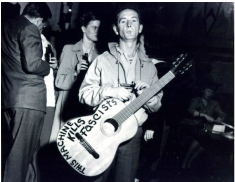
"I ain't got no home in this world anymore."
Woody Guthrie
